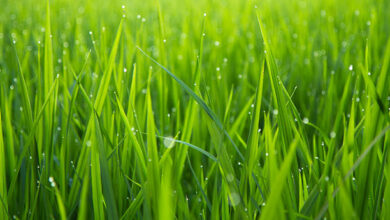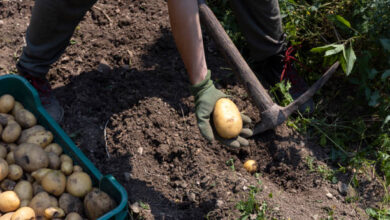
When to Plant Clover: A Comprehensive Guide
Thinking about adding clover to your garden? Timing is everything! Clover is more than just a pretty plant; it offers numerous benefits for soil health, weed control, and attracting pollinators. However, to reap these benefits, you need to know the best times to plant clover. In this guide, we’ll explore the ideal planting seasons and share tips to ensure your clover thrives.
Benefits of Planting Clover
Clover is often overlooked in favor of more traditional garden plants, but it offers a multitude of benefits that make it a valuable addition to any garden or lawn. From enhancing soil health to attracting beneficial insects, clover’s advantages are extensive and multifaceted.
- Soil Health
One of the most significant benefits of planting clover is its positive impact on soil health. Clover, especially varieties like white and red clover, has a unique ability to fix nitrogen from the atmosphere. This process occurs through a symbiotic relationship between clover roots and Rhizobium bacteria. The bacteria live in nodules on the clover roots and convert atmospheric nitrogen into a form that plants can use, such as ammonia. This natural fertilization improves soil fertility, making it richer and more capable of supporting a wide variety of plants.
Additionally, clover’s deep root system helps to aerate the soil and improve its structure. The roots break up compacted soil, allowing water and nutrients to penetrate more easily. This increased soil porosity enhances water retention and reduces erosion, leading to healthier plants and more resilient landscapes.
- Weed Control
Clover is an excellent natural ground cover that competes effectively with weeds. Its dense, low-growing foliage forms a thick mat that shades the soil, making it difficult for weed seeds to germinate and grow. This competitive growth habit means that clover can outcompete many common weeds, reducing the need for chemical herbicides and manual weeding.
By acting as a living mulch, clover not only suppresses weeds but also helps maintain soil moisture. The canopy created by clover leaves reduces evaporation, keeping the soil cooler and more hydrated during hot weather. This moisture retention is beneficial for both the clover itself and any companion plants growing nearby.
- Attracting Pollinators
Clover flowers are:
- A rich source of nectar and pollen.
- Making them highly attractive to pollinators such as bees.
- Butterflies.
- Other beneficial insects.
These pollinators play a crucial role in the ecosystem by helping plants reproduce. By planting clover, you’re creating a habitat that supports these essential insects, which in turn benefits your garden and the broader environment.
Bees, in particular, are drawn to clover’s fragrant, nectar-rich blooms. Clover honey, made from the nectar collected by bees visiting clover flowers, is renowned for its mild flavor and health benefits. By providing a consistent food source for bees, clover helps support their populations, which have been declining in recent years due to habitat loss and pesticide use.
- Erosion Control
Clover’s extensive root system is highly effective at preventing soil erosion. The roots help bind the soil together, reducing the risk of erosion caused by wind and water. This is especially beneficial on slopes or areas prone to runoff. By planting clover, you can stabilize the soil and protect it from the damaging effects of erosion, preserving the integrity of your landscape.
- Low Maintenance
Clover is a hardy plant that requires minimal Maintenance once established. It is drought-tolerant, can thrive in poor soil conditions, and often needs less mowing than traditional grasses. Clover also requires less frequent watering and fertilizing, making it an eco-friendly and cost-effective option for lawns and gardens.
- Biodiversity and Wildlife Habitat
Planting clover contributes to increased biodiversity in your garden. It provides habitat and food for a variety of wildlife, including insects, birds, and small mammals. This biodiversity is crucial for maintaining a balanced and healthy ecosystem. By supporting a range of species, clover helps create a more resilient and dynamic environment.
- Aesthetic Appeal
In addition to its practical benefits, clover adds aesthetic value to your garden. Its lush green foliage and delicate flowers can create a beautiful, natural-looking lawn or ground cover. Clover’s ability to thrive in shaded areas where traditional grasses might struggle adds versatility to your landscape design.
Best Times to Plant Clover
- Spring Planting
Early spring is one of the best times to plant clover. As the soil warms up and becomes moist from spring rains, clover seeds have optimal conditions for germination. Planting in early spring also gives clover a head start on growth before the hot summer months, allowing it to establish a strong root system.
- Fall Planting
Fall is another excellent time to plant clover. Cooler temperatures and increased moisture levels create favorable conditions for seed germination and growth. Additionally, growing in the fall means clover faces less competition from weeds, which are typically less aggressive as temperatures drop. The young plants will have the winter to establish themselves and will be ready to grow vigorously in the spring.
- Climate Considerations
The best time to plant clover can vary depending on your local climate. In warmer regions, fall planting is often preferred because it avoids the intense heat of summer. In cooler climates, early spring planting ensures clover has a full growing season to develop. Always consider your regional weather patterns and choose a planting time that provides the best-growing conditions for clover.
You May Love To Read:
What to Plant with Bee Balm?: All You Need To Know.
When to Plant Potatoes in Texas: The Ultimate Guide.
What Planting Zone is Missouri? Your Guide to Gardening Success
What is O Farming? Organic Farming
Planting and Growing Tips
- Soil Preparation
Before planting clover, it’s essential to prepare the soil properly. Clover prefers well-drained soil with a pH between 6.0 and 7.0. Test your soil’s pH and adjust it if necessary by adding lime to raise the pH or sulfur to lower it. Loosen the soil to improve aeration and drainage, which helps clover roots grow more effectively.
- Seeding Techniques
When it comes to seeding clover, there are a few techniques to consider. Broadcasting, where seeds are spread evenly over the soil surface, is a common method. You can also use a seed drill for more precise planting. After sowing, lightly rake the soil to cover the seeds and ensure good seed-to-soil contact. Water the area gently to keep the soil moist until the clover germinates.
- Maintenance and Care
Clover is relatively low-maintenance, but a few care tips can help it thrive. Water your clover regularly, especially during dry periods, to keep the soil consistently moist. Mowing clover a few times during the growing season encourages dense growth and helps control weeds. Monitor for pests, such as aphids or mites, and use natural pest control methods if necessary.
Conclusion
Clover is a versatile and beneficial addition to any garden. By planting clover at the right time—early spring or fall—you can maximize its growth and the advantages it brings, from improving soil health to attracting pollinators. With proper soil preparation, seeding techniques, and care, clover can transform your garden into a vibrant, healthy space.
Now that you know when to plant clover, why not start planning your planting schedule? Visit your local garden center or online store to purchase quality clover seeds and get ready to enjoy the numerous benefits of this amazing plant. Happy planting!




